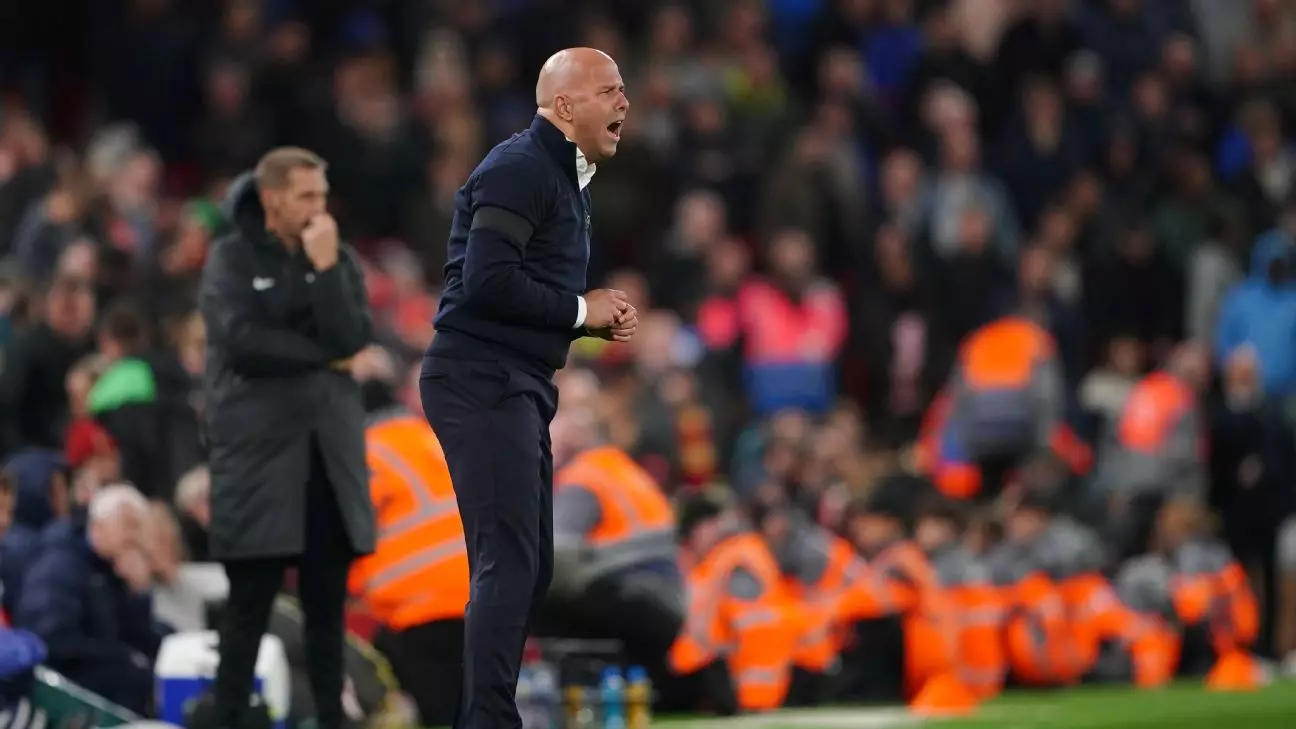In the electric environment of Anfield, few things evoke as much passion as the refereeing decisions that can sway the outcome of a match. Arne Slot, the former Feyenoord manager, voiced his perspective following Liverpool’s hard-fought 2-1 victory over Chelsea, suggesting that referee John Brooks may have felt the need to resist the intimidating atmosphere created by the home supporters. This commentary sheds light not only on Slot’s experience but also highlights the complex interplay between referee authority, crowd influence, and match outcomes.
Anfield is renowned for its fervent support, and this kind of atmosphere can put referees in a challenging position. Slot’s remarks reflected a common sentiment among coaches—that the crowd’s intensity can impact the officiating. Fans often believe that loud encouragement can sway judgements in their favor, leading to discussions about how the referee’s decision-making is affected by the home crowd’s fervor.
Sunday’s match was not short of VAR controversies, and these moments can be critical in shaping a team’s morale and the match’s trajectory. During the early minutes, a yellow card was issued to Tosin Adarabioyo for pulling down Diogo Jota, a decision indicative of Brooks’ early insistence on maintaining control. However, as the match progressed, the pendulum swung when Liverpool was awarded a penalty for a foul by Levi Colwill on Curtis Jones. This first penalty appeared justified, as Brooks did not hesitate to point to the spot, representing a potential turning point in the match.
However, just before halftime, the tides shifted again. Brooks awarded a second penalty after a collision between Chelsea’s goalkeeper Robert Sánchez and Jones. Yet, after consultation with VAR official Michael Oliver, the decision was reversed, a move that incited further debate about the validity of the call and the inconsistency of officiating during high-pressure scenarios. Such events illustrate the unpredictable nature of VAR, which can sometimes amplify existing tensions rather than alleviate them.
As the match resumed, Chelsea equalized through Nicolas Jackson, whose goal, initially ruled offside, was overturned, further complicating the narrative of the match. But Liverpool responded swiftly, with Mohamed Salah providing a pinpoint cross for Curtis Jones to slot home the winner just minutes later. This goal testified to the refined attacking prowess that Liverpool has developed under their current regime.
Slot’s acknowledgment of the exceptional quality in Liverpool’s squad signals a recognition of the competitive nature of football at this level. For a manager like him, witnessing the swift interplay between Salah and Jones must have been a poignant reminder of the challenges his team faced. Liverpool’s ability to catalogue moments of brilliance, even amidst the turmoil of officiating, stands as an emblem of their resilience.
Slot’s reflections extended beyond the actions on the pitch to encompass the psychological implications of crowd dynamics. He implied that, despite the referee’s performance, the Anfield crowd’s energy served as a vital source of motivation for the Liverpool players. Their ceaseless support—particularly in moments of defensive heroics and significant efforts like Darwin Núñez’s sprinting back—can serve as a catalyst for player performance.
Yet, Slot’s assertion that the anticipated “easy calls” rarely materialized during their encounter challenges the idea that home advantage translates into favorable officiating. His comments reveal a broader context, underscoring the need for players and teams to develop resilience irrespective of external influences, including refereeing decisions.
The intersection between referee performance and the dynamic energy of crowds like that of Anfield remains a fascinating subject. Slot’s insights following the Liverpool vs. Chelsea clash reveal the intricate layers of football, where psychological warfare extends beyond the players to encompass referees, managerial strategies, and fan engagement. Ultimately, matches at this level serve as reminders that while home advantage may be a prevailing belief, the realities of officiating and competition are far more nuanced. As the football world continues to evolve, understanding these dynamics will be crucial for teams looking to harness the power of their home environments while navigating the complexities that accompany high-stakes matchdays.


Leave a Reply